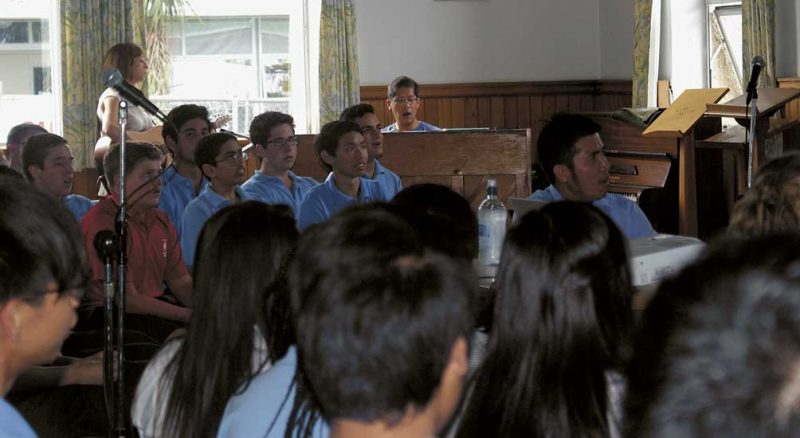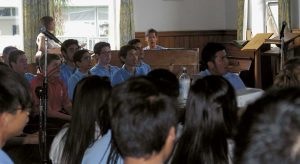by ROWENA OREJANA
Pope Francis’s papacy should be the model followed when it comes to intercultural relationships
within the Church, according to an adviser to the United States Bishops’ Committee on Cultural
Diversity in the Church and the Committee on Divine Worship.
 adviser, Fr Ricky Manalo, CSP, said in Auckland on March 3, that Pope Francis’s leadership
adviser, Fr Ricky Manalo, CSP, said in Auckland on March 3, that Pope Francis’s leadership
style is all about “encountering others”.
“His papacy is being marked by communication, dialogue and acceptance, which is a good starting point for any kind of multicultural issues that emerge in the Church,” he said.
his liturgical songs. He held workshops in Auckland, Wellington, Blenheim and Queenstown on liturgical music and intercultural relationships in the Church in the last week of February and
first week of March.
His songs combine his Asian-American perspective with deep liturgical grounding. Some of his
songs sung in New Zealand churches include Spirit and Grace, Worthy is the Lamb and In These
Days of Lenten Journey.
“I have written about 120 songs. I usually compose a song if there is not a song out there, usually to fill in a liturgical niche. For example, I wrote a song called The Transfiguration. What motivates me is my need to fill the niche,” he said.
He started writing music when he was 22 and a seminarian. “The Holy Spirit is my inspiration. I am very prayerful and very pastoral,” he said.
Apart from liturgical music, he has written numerous articles and books on liturgy, culture, liturgical music and intercultural communication.
Fr Manalo said he approaches multiculturalism in the Church in terms of intercultural ministry and dialogue.
“I think that’s the key in learning how to balance and find balance between unity and diversity.
In the end, the Church has always been multicultural in that it has always been trying to balance
its universality with the diversity of languages, cultures, arts, music and all of that,” he said.
Fr Manalo explained that the way to do this is to focus on the process — which will be a long one.
“Pastoral leaders have to be attentive and intentional in guiding that process of multicultural
dialogue,” he said.
He said the process includes an appreciation of varied traditions, a realisation that traditions
are also changing, and an invitation to dialogue with different cultural perspectives.
“Any pastoral programme should not only look at liturgy but other pastoral activities. You can look at international potluck meals where there is a lot interculturality going on, but it’s
non-threatening,” he said.
People learn about the other’s culture through food, sharing of songs, or music, he cited. That way, when it [culture] comes into liturgy, it doesn’t become completely foreign to the others.
“Pastoral leaders also need to learn different methods of liturgical inculturation; for example,
the method of dynamic equivalence where you can have the same theological meaning but different
expressions of it,” Fr Manalo added.
He said in some cultures, a bow is acceptable as a sign of peace. In African-American communities,
a hug is a sign of peace. “It’s the same equal meaning, in this case reconciliation, but it’s a dynamic way of different cultures going about it,” he said.
The last point, he said, about multiculturalism in the Church is “that every cultural group has
to compromise when it comes to multicultural aspects”.
“As the years progress and New Zealand does become more multicultural, each cultural group are going to have to realise that they have to sacrifice something. It doesn’t mean that they lose completely their cultural identity. But it does mean that they have to recognise the larger body
of Christ and its presence, that there’s going to some compromise,” he said.


Fr Manalo is part of the problem.
It is the worship of diversity and multi-culturalism that has allowed the devastating advance of Islam to go virtually unchecked.
There is an urgent need for Catholics to reclaim and proclaim their possession of the truth, the one truth, the whole truth, that doesn’t admire divergences for their “diversity”.